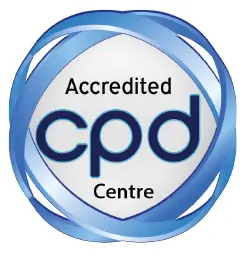Is This for You?
This course is perfect for you if you can already write to a good speed, of around 80 wpm, but want to take your skill-level even further and learn to write at speeds of up to 120 wpm.
Award and Associated Qualifications


This course is perfect for you if you can already write to a good speed, of around 80 wpm, but want to take your skill-level even further and learn to write at speeds of up to 120 wpm.

Brought to you by Pitman Training, the master of shorthand, this practical and intensive course is designed for people wishing to improve existing Teeline shorthand skills as speedily as possible.
After just eight hours or so, you’ll have enhanced your shorthand sufficiently to achieve a good working standard. Before you start, you’ll need to have an ability to write Teeline shorthand at around 80 wpm, but on completion, you will have honed your skills and speeds to attain up to 120 words per minute.
The course contains dictation material ranging between 80 and 120 wpm, key shorthand outlines, a range of practical exercises and keys to transcribed passages.
In line with all our courses, your training will be flexible, giving you the freedom to learn when it suits you. For those times when you need support, our experienced course advisors will always be on hand. At the end of your course you’ll have the Pitman Training name on your CV and Certificate, both of which are highly respected by employers.
"*" indicates required fields
This course is for anyone who already uses the Teeline Shorthand system to a good level but want to progress their skills even further to an expert level.
You will need to have experience and knowledge of the Teeline Shorthand system.
Wherever possible our training is tailored to your needs. The cost of our training programmes depend on the course(s) you choose and varies according to duration and breadth. Rest assured we have a number of payment options available to ensure the cost of training is affordable and can be worked alongside your other financial commitments. Common ways people fund their training include: –
Requesting funding from your employers needn’t be a daunting task. Many employers support and encourage their employees with their professional development and consider it a worthwhile investment to fund any training required.
What we can help with:
Funding & Grants:
There may be the opportunity to apply for funded grants that can help towards the cost of training. These include the Skills Development Scotland ITAs and the ReAct programme in Wales. All schemes will have different terms and conditions that will need to be met in order to qualify for a grant and these are managed by each individual centre.
We’d recommend you speak to a Course Advisor in your local centre to find out whether they are registered to offer any such schemes and discuss your requirements further.
* Terms and Conditions apply. Speak to a Course Advisor for full information on the options available to you.
Shorthand is still widely used in journalism so if you’re an aspiring journalist and want to refresh or hone your Teeline shorthand skills, this course will definitely help. Other roles where shorthand remains in use are Secretarial and PA type positions.